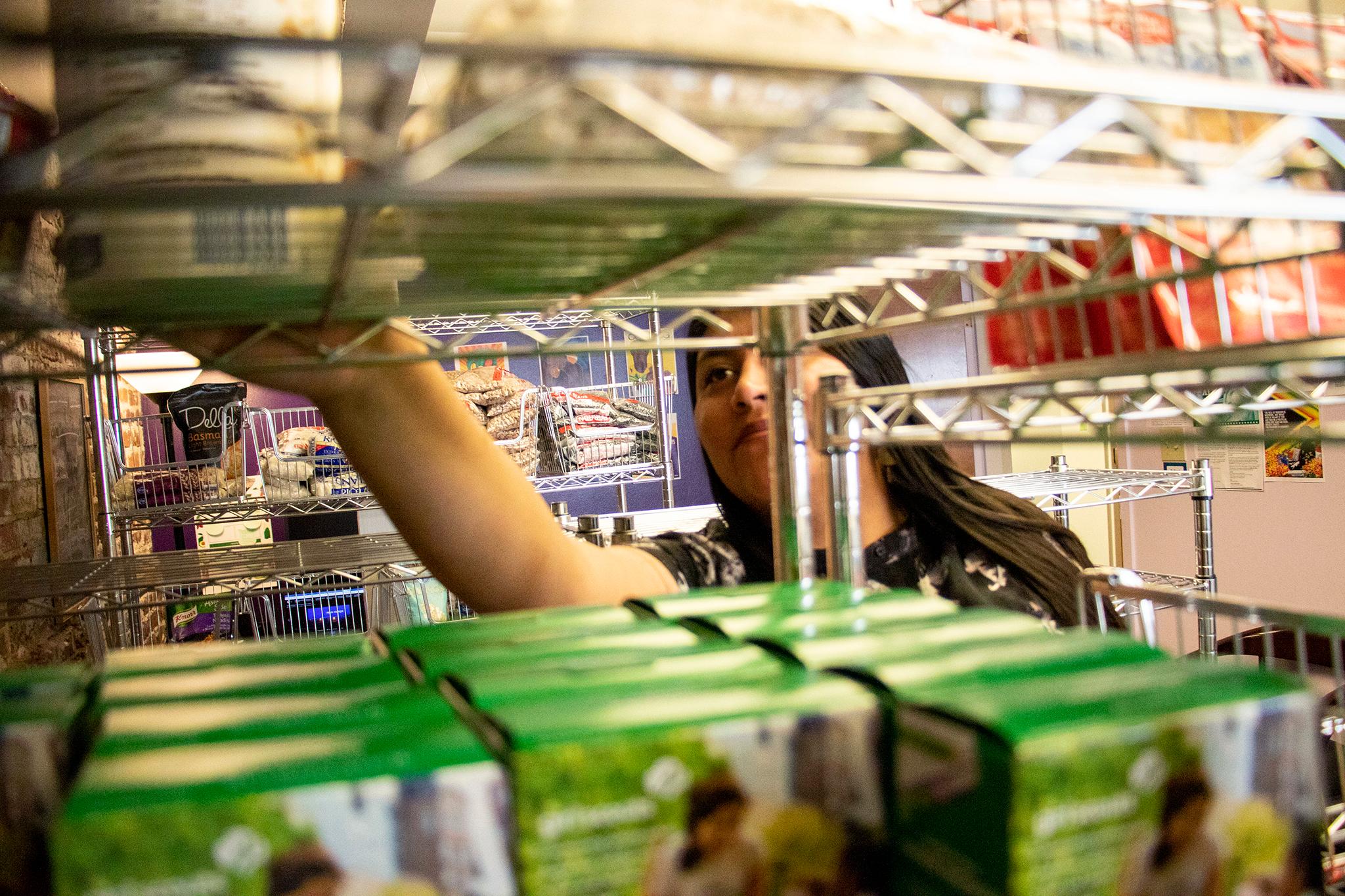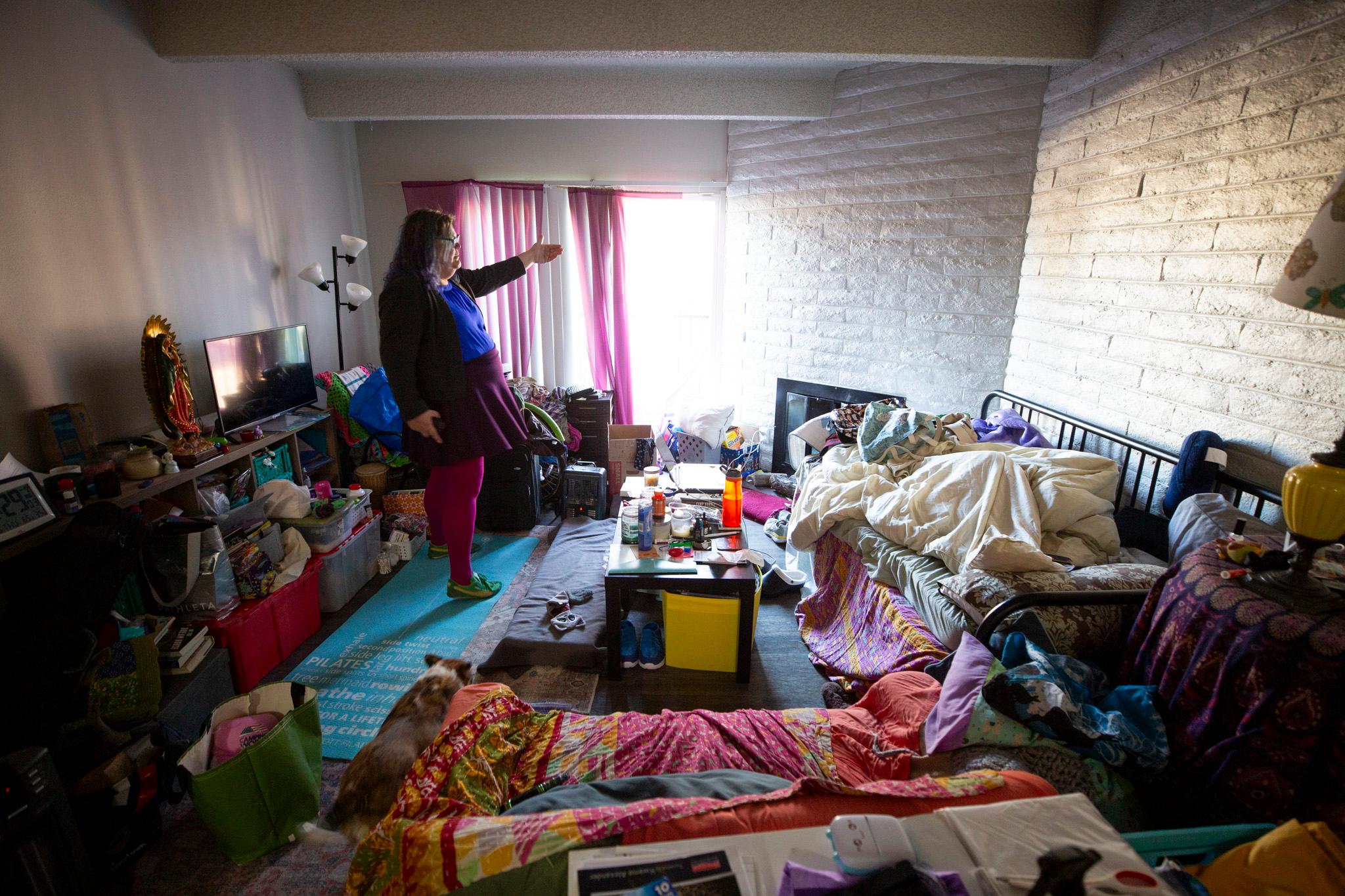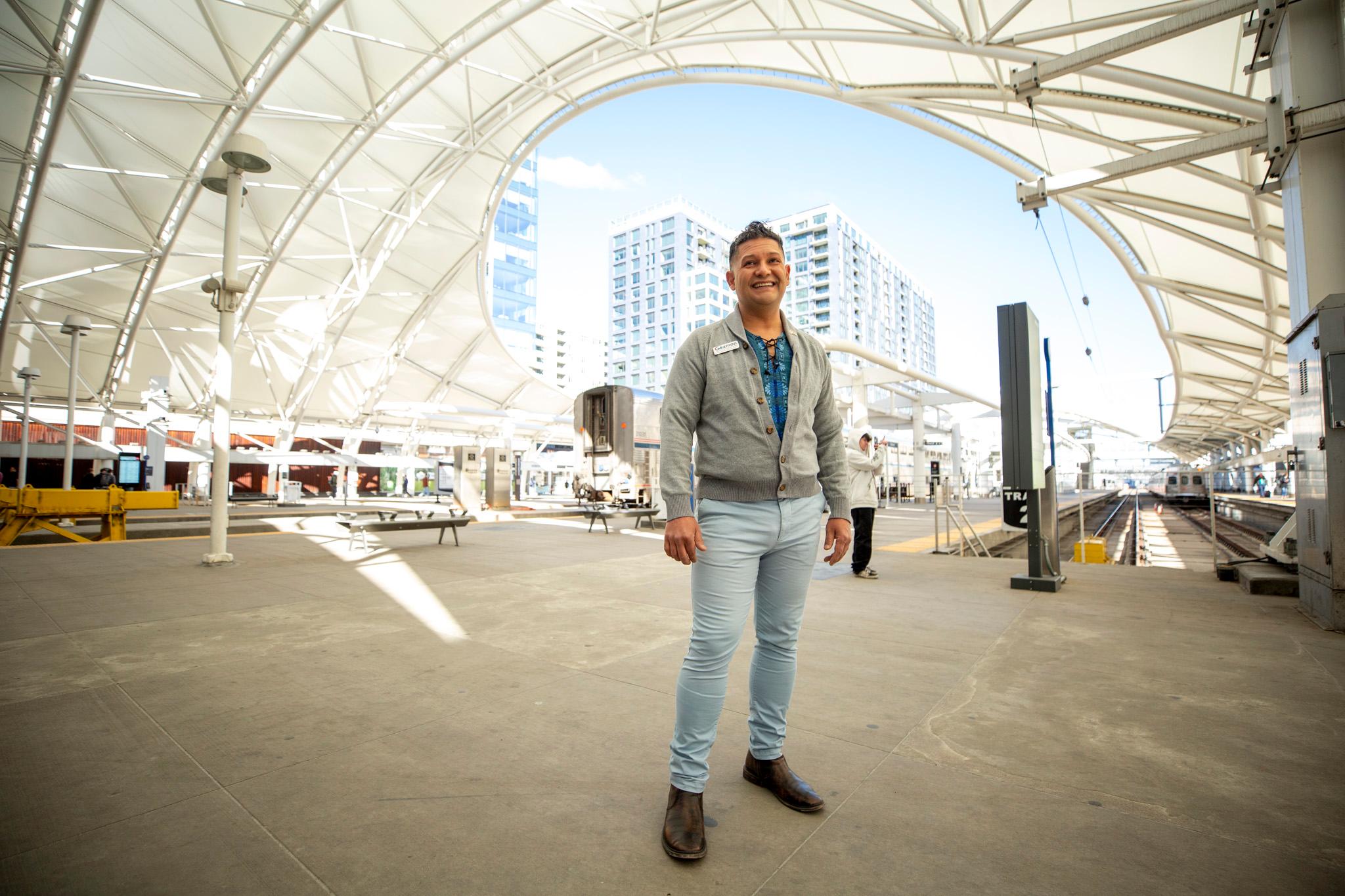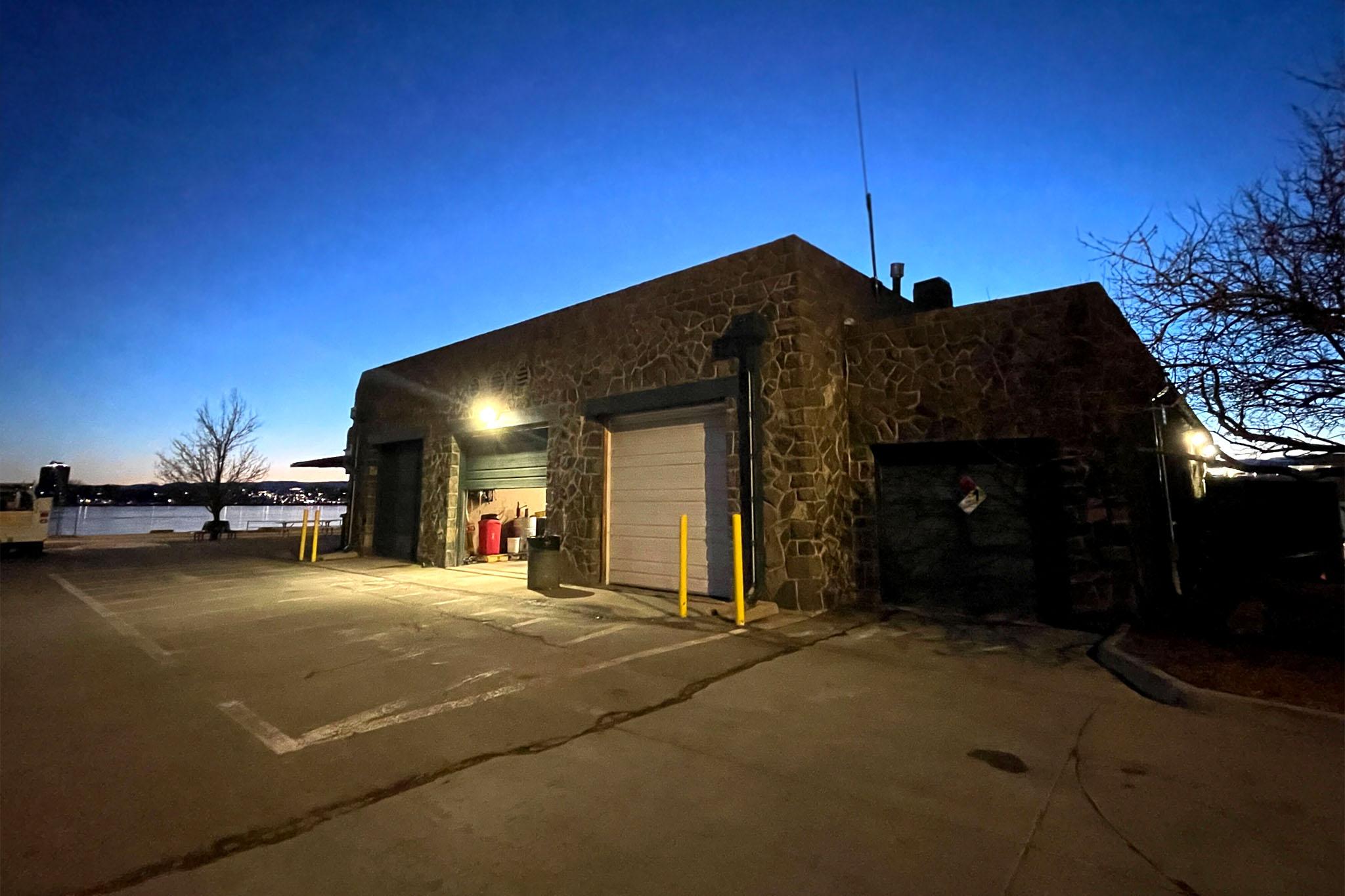A recent move downstairs has meant big changes for the decade-old food pantry serving hungry students at the Community College of Denver.
The shift came as part of a relocation within the Tivoli Student Union to better serve student needs like scholarships and a textbook library.
"Upstairs it was like in a corner," said Lorraine Seals-Williams, a student who helps her peers navigate the pantry. "Here, it's more open. It feels like a grocery store almost."
Kathryn Mahoney, director of student life, said that the pantry had been set up a few years before she arrived at the college in 2011. Then, it was not much more than a shelf of groceries. It hadn't grown much over the years.
Mahoney wanted to expand a service for students who "are making the decision about whether or not they're going to buy textbooks or pay tuition or buy food."
Mahoney met about a year ago with Arlan Preblud, founder and executive director We Don't Waste, a nonprofit that collects excess and edible food from restaurants, caterers and others and delivers it to food pantries.
Preblud "had some concerns because we had very limited space," Mahoney said.
Soon after, the opportunity arose to move the Office of Student Life. They moved downstairs to the Tivoli's main floor Thanksgiving week.
In the new pantry space, students can wander choosing what they want from a roomful of several shelves -- like a small grocery store, as Seals-Williams pointed out. Because so many other services are offered in the same space, no one needs to know that a student might be there for the pantry.
"The hardest thing with a food pantry is de-stigmatizing the need to ask for food," Mahoney said.
A bigger pantry gives We Don't Waste more scope. The organization had made a few small deliveries before the move. It's now stepping that up, Mahoney said.
We Don't Waste deliveries are free. Since the move, Charlie Fredrick, a new case manager in the Office of Student Life, has revived a relationship with the Food Bank of the Rockies that had been abandoned a few years ago. Food Bank of the Rockies is a source of discounted non-perishable food as well as free, fresh produce.
Before the move, the college pantry was buying most of its supplies from grocery stores using money budgeted by the student council. This year, the pantry budget is about $25,000.
Saving on groceries will allow the pantry to spend more on the nonfood items it stocks, such as toiletries. It also will allow the pantry to serve more students.
"We are looking for ways to work smarter with our money," Mahoney said.
One change being considered, Mahoney said, is to join forces with the two other institutions on the Auraria Higher Education Campus that sits across Speer Boulevard from downtown. Each of three Auraria schools -- the Community College of Denver, Metropolitan State University of Denver and the University of Colorado Denver -- has its own pantry. Preblud says a combined pantry would be more efficient and cost-effective. Mahoney said combining the pantries would take work and planning and now is only at the discussion stage.
Four in 10 students at the Auraria schools worry about running out of food before being able to afford more, according to a survey last year by the Hope Center for College, Community, and Justice, a think tank at Temple University. The Hope Center has conducted such surveys at schools across the country and found similar conditions.
Denver's Regis University started a food pantry last year. The University of Denver also has a pantry.
Mahoney sees increasing awareness that the problem is linked to broader economic realities, such as the cost of housing in Denver.
"We definitely have a population of homeless students on campus that really relies on this (the food pantry) for their meals," she said.
Any Community College of Denver student can get free food, up to six items a week, at the pantry. In addition, students can grab a free snack -- a packet of ramen noodles, peanut butter crackers, a granola bar -- at the front desk. No limits are set on the snacks.
Since August, the pantry has had 1,000 visits. Most of those were to the old space. Mahoney expects the relocated and revamped pantry to attract more students, but said that is hard to determine now because the holidays have meant fewer students have been on campus since the move.












